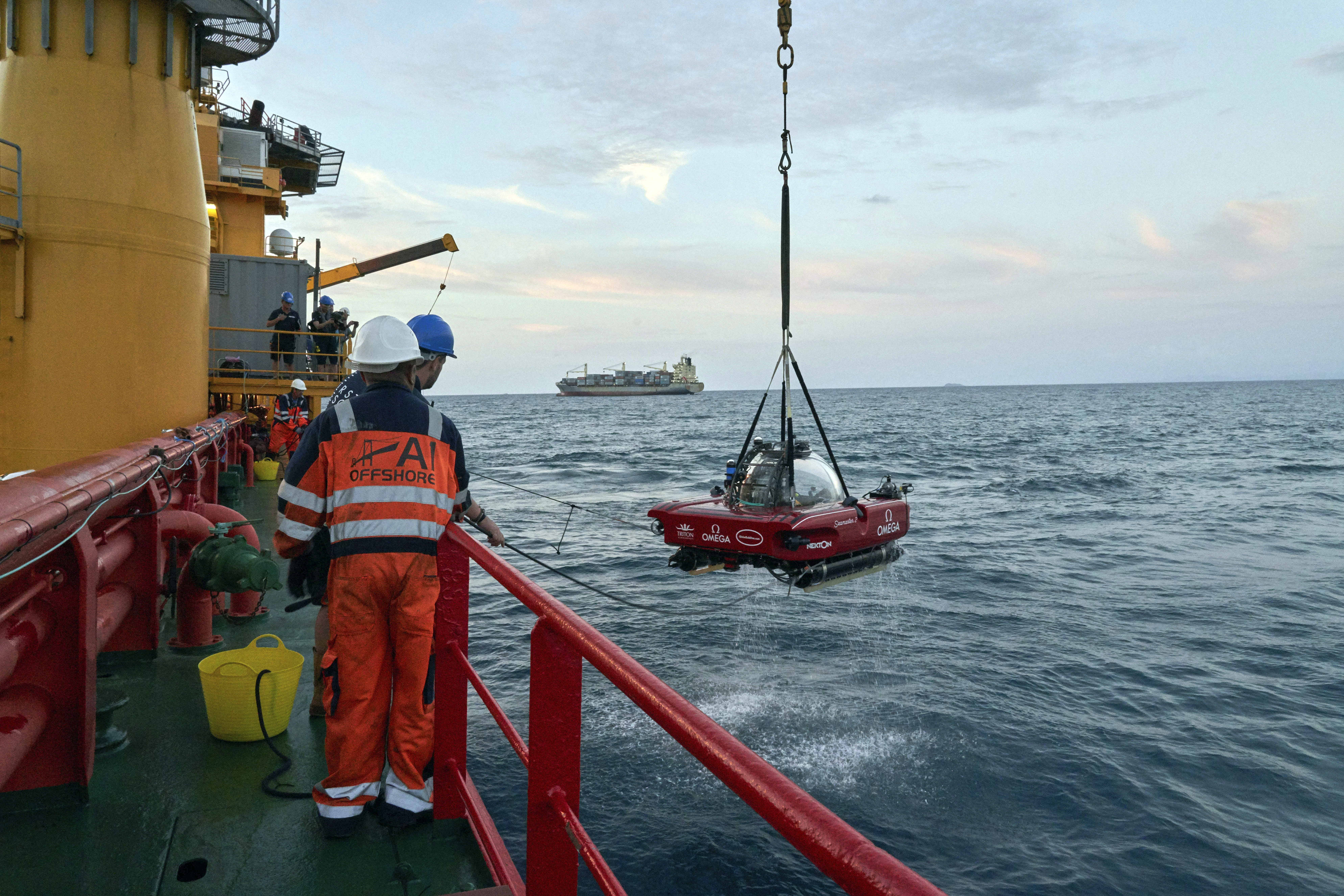
Scientists begin quest to explore Indian Ocean depths
VICTORIA, Seychelles (AP) — Bad weather and high seas brought scientists on Wednesday to change the first stop of a unique mission to explore the depths of the Indian Ocean, one of the planet’s last great unexplored frontiers. While the initial path of the exploration has changed, the scientists intend to fully explore the deep seas around the Seychelles. Here’s a look at what the Nekton Mission hopes to achieve and why the people of the Seychelles, the first stop on this three-year expedition, are excited about its launch.
___
WHO’S ON BOARD?
The expedition is led by the Britain-based Nekton, an independent, non-profit research institute that works with the University of Oxford to increase scientific understanding of the oceans. It has chartered the Ocean Zephyr, a Danish-flagged supply ship, to explore the waters around the Seychelles, a collection of islands about 1,500 kilometers (930 miles) east of the African coast, over a seven-week period.
This is the first of a half-dozen regions the Nekton Mission plans to explore before the end of 2022, when scientists will present their research at a summit on the state of the Indian Ocean.
Along with 18 crew members there are 33 scientists, technicians and reporters on board.
The Associated Press is accompanying the expedition and will provide live underwater video from the dives, using new optical transmission technology to send footage from the submarines to the ship and from there, by satellite, to the world.
___
WHERE ARE THEY GOING?
Researchers started by heading to the Farquhar Atoll, a group of islands about 770 kilometers (480 miles) southwest of the Seychelles capital, Victoria.
But brewing bad weather the mission to change course on Wednesday because it feared conditions would be too difficult to carry out its work.
The leaders of the mission, which is British-led and includes Seychellois scientists on board, spent hours studying weather reports which were slow to come in to their ship, the Ocean Zephyr, due to difficulties accessing the internet.
A strong swell and high winds made it impossible for the team to safely launch and recover the crewed submersibles that will carry out the explorations.
With building storm activity close to their first chosen location, the low-lying Farquhar Islands, the team decided to head instead to the tiny atoll of Alphonse, the above-water tip of an underwater mountain, or sea mount, surrounded by seas thousands of meters (feet) deep.
“It’s no good sticking to a rigid plan if we have a storm coming through and we are going to sit around and do nothing for a few days,” Nekton’s principal scientist, Lucy Woodall, told The Associated Press.
Further stops include Aldabra, a coral atoll that’s home to a large population of giant tortoises and other vulnerable species.
___
WHAT DO THEY HOPE TO FIND?
Scientists will survey underwater life by diving into the “twilight zone” below depths of 30 meters (98 feet) that the tropical sun barely reaches. Using two crewed submarines and a remotely operated submersible they’ll be able to document organisms and habitats up to 500 meters (1,640 feet) deep, while sensors will offer a glimpse of depths of up to 2,000 meters (6,560 feet).
Little is known about this watery world. Yet what happens beneath the waves could affect the lives of billions of people who live along the Indian Ocean’s shores in Africa and Asia.
Already, rising water temperatures are bleaching coral reefs, with potentially serious consequences for other organisms.
By conducting at least 50 “first descents” to map the depths around the Seychelles, scientists hope to better understand the marine ecosystem and the way this vast body of water is changing due to global warming.
“If you save the islands, you save everybody,” Ronny Jumeau, Seychelles’ ambassador to the United Nations, told the AP in explaining the importance of countering climate change. “If the islands go, every port city, major port city, will go. Every beach in the world will go, every river estuary will go. Every delta, the Nile Delta, the Mekong Delta, you name it.”
___
WHY THE EXCITEMENT?
The Nekton Mission has become the talk of the Seychelles, a nation of fewer than 100,000 people, since the Ocean Zephyr’s arrival last week.
President Danny Faure visited the ship last week, calling the expedition “a historical moment” for the nation. “The scientific community, the academia, the children around the world in schools, they see what’s happening” to the climate, he said. “Why can’t other governments see this? Are they blind?”
The Seychelles government is developing what it calls a “Blue Economy” centered on the sustainable exploitation of ocean resources. So far the country has protected 15 percent of its ocean territory and has pledged to increase that to 30 percent by 2020.
Michelle Murray, chief executive of the Seychelles-based Island Conservation Society, called the expedition a once-in-a-lifetime opportunity.
“We’re the first to feel the true impact of sea level rise,” she said. “Climate change poses the biggest threat to our survival, to our existence as a nation.”
___
Link: https://nektonmission.org/mission-ii
The Western Journal has not reviewed this Associated Press story prior to publication. Therefore, it may contain editorial bias or may in some other way not meet our normal editorial standards. It is provided to our readers as a service from The Western Journal.
Truth and Accuracy
We are committed to truth and accuracy in all of our journalism. Read our editorial standards.
Advertise with The Western Journal and reach millions of highly engaged readers, while supporting our work. Advertise Today.












